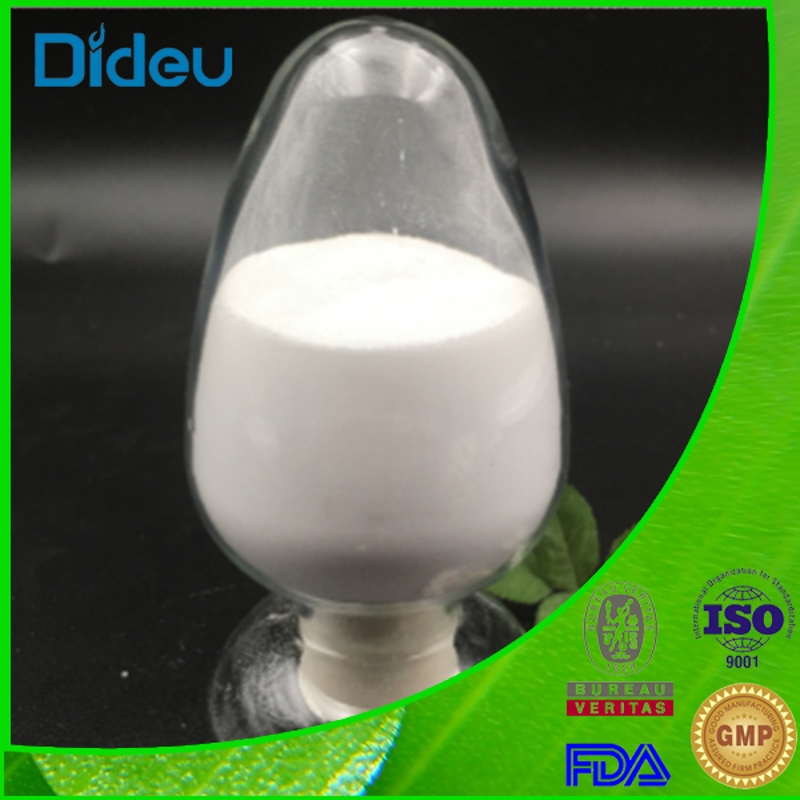-
Categories
-
Pharmaceutical Intermediates
-
Active Pharmaceutical Ingredients
-
Food Additives
- Industrial Coatings
- Agrochemicals
- Dyes and Pigments
- Surfactant
- Flavors and Fragrances
- Chemical Reagents
- Catalyst and Auxiliary
- Natural Products
- Inorganic Chemistry
-
Organic Chemistry
-
Biochemical Engineering
- Analytical Chemistry
- Cosmetic Ingredient
-
Pharmaceutical Intermediates
Promotion
ECHEMI Mall
Wholesale
Weekly Price
Exhibition
News
-
Trade Service
Every year, July 8th is World Allergic Disease Day
.
Allergic disease is also called allergic disease, because the patient is too sensitive and produces a specific immunoglobulin E antibody (IgE) in the blood that is allergic to a particular allergen
.
The World Allergy Organization (WAO) epidemiological survey of allergic diseases in 30 countries shows that 22% of people suffer from allergic diseases, the most common of which are allergic rhinitis and allergic asthma
.
Today we are going to talk about allergic rhinitis that causes congestion, runny nose, and constant sneezing
.
Allergic rhinitis (AR) is a non-infectious chronic inflammation of the nasal mucosa after exposure to allergens (such as dust mites, pollen, animal fur, etc.
).
It is manifested as sneezing, clear water nasal mucus, nasal itching, nasal congestion, etc.
Symptoms such as hypoosmia, itchy eyes, and conjunctival hyperemia will occur
.
According to the “Guidelines for the Diagnosis and Treatment of Allergic Rhinitis” issued by the Chinese Society of Allergy in 2018, in the past few decades, the incidence of AR in countries around the world has gradually increased, plagued 10% to 40% of the global population
.
In China, the standardized prevalence of AR in adults rose from 11.
1% in 2005 to 17.
6% in 2011
.
As we all know, allergic rhinitis often causes damage to the quality of daily life and inconvenience to life, but in fact, its negative effects are far more than that
.
A study published in Pediatr Allergy Immunol in July 2020 investigated the impairment of the cognitive function of allergic children during the pollen season, and tried to correlate the degree of impairment with the quality of life and with stress and inflammation.
Linking related biomarkers
.
The DOI: 10.
1111/pai.
13328 study included 43 children (8-17 years of age) with grass pollen allergic rhinitis who had unsatisfactory medications in the previous season (antihistamine and nasal steroids were given daily)
.
In addition, 26 matched non-allergic children were included as controls
.
The study found that cognitive function was impaired in spatial working memory, and the allergic group made more errors than the non-allergic group, but there was no difference between the two groups during the non-pollen season
.
In other tests of visual memory or attention, the researchers found no significant differences between the allergy group and the control group
.
The quality of health questionnaire showed that the allergic group had more symptoms and impaired quality of life
.
During the pollen season, more symptoms in the allergic group were associated with longer reaction times for simple exercise
.
In addition, no differences in stress or inflammation markers were found between the two groups
.
Researchers pointed out that children with hay fever are affected in their cognitive function during the pollen season, and the more symptoms, the longer the cognitive test response time
.
Cognitive test results of children in the control and allergic groups during pollen season and non-pollen season.
Allergic rhinitis not only affects cognitive function, but also adversely affects social, mental and psychological status.
Studies have shown that nasal symptoms are associated with anxiety , Emotional and behavioral problems are significantly related
.
A study on the quality of life (QOL) of AR patients showed that the health of patients has declined in all areas, especially in terms of general health cognition, physical role function, and emotional role function
.
At the same time, although patients have no obvious differences in personality characteristics, they tend to develop anxiety
.
https://pubmed.
ncbi.
nlm.
nih.
gov/20464984/ Similarly, in a prospective cohort study of moderate/severe AR patients, the visual analog scale (VAS) and AR control test (ARCT) were used It was shown that 86.
9% of patients were in sleep, 84.
9% were in work and life, 81% were in social activities, and 90.
1% were impaired in physical activity
.
DOI: 10.
2500/ajra.
2014.
28.
4079 What is the main cause of allergic rhinitis? The main cause of AR is inhaled allergens, including outdoor and indoor air allergens
.
Outdoor allergens mainly include pollen and fungi, which are positively correlated with the development of seasonal/intermittent AR
.
Indoor allergens usually include mites, animal dander, cockroaches and fungi, which are the main causes of perennial/persistent AR
.
Recently, researchers have evaluated the relationship between environmental air pollution, family environment, asthma and rhinitis among adults across China
.
DOI: 10.
1016/j.
scitotenv.
2020.
141734 research shows that urbanization, NO2 and traffic exhaust can increase the risk of asthma and allergic rhinitis (AR) in adults
.
Increased exposure to allergens from animals or pests (cats, dogs, cockroaches, mice/rats) can increase the risk of asthma or allergic rhinitis
.
Sources of indoor chemicals, such as redecoration and new furniture, are also risk factors
.
Indoor combustion sources, including cooking with gas stoves or burning biomass, burning mosquito coils and incense, may be related to asthma or allergic rhinitis
.
However, frequent cleaning and exposing the bedding to the sun can play a protective role
.
How to distinguish the relationship between family environment factors and asthma and allergic rhinitis? If someone around you has nasal congestion, runny nose and other symptoms, it is often mistaken for a cold, but maybe he is also AR.
How to distinguish a cold from AR? The cold is contagious.
Symptoms such as nasal congestion, sneezing, and clear water nasal discharge are very similar to allergic rhinitis, but the former usually has fever, sore throat, cough, etc.
, which usually get better in about a week
.
AR symptoms often recur and last for a long time.
Sometimes it can last for several weeks, months, or even all year round.
There will be a lot of nasal discharge, continuous sneezing, extremely itchy nose, etc.
, as well as symptoms of itchy eyes and hyposmia.
.
It becomes more obvious when hot and cold alternates and air pollution is serious, and it has a significant relationship with contact allergens
.
How to effectively control AR disease? Although there is no cure for AR at present, the condition can still be well controlled in daily life as long as the following points are done: 1.
Avoid contact with allergens.
Avoid contact with various allergens indoors and outdoors.
Carefully observe and record.
Discover possible allergens in daily diet and items in contact, and then avoid them
.
Daily must maintain air circulation and indoor cleanliness; avoid contact with carpets and plush toys; regularly clean the air-conditioning filter; dry the bedding frequently and replace the pillow towel in time; when the season changes, the clothes in the wardrobe should be dried before wearing
.
2.
Pay attention to temperature changes.
Many patients are more sensitive to temperature and the weather turns cold.
After getting up every day, you can apply a warm towel to your nose or drink a cup of hot water to keep your nose warm
.
Outdoors, you can wear a mask to keep your nose and mouth warm
.
3.
Rinse the nasal cavity It is recommended to rinse the nasal cavity once every morning and evening, which can effectively reduce the allergen content in the nasal cavity
.
There are special nasal washers in major hospitals or regular pharmacies, which can be used according to the instructions
.
4.
There is currently no cure for AR with drug use, but it can be effectively controlled by drugs
.
The most commonly used clinically are nasal corticosteroids, decongestants, antihistamines, etc.
5.
Immunity-enhancing rhinitis often occurs when resistance is reduced.
Strengthening exercise, healthy eating, and staying up late can ensure daily strong immunity
.
To sum up, the smoothness of the nasal cavity is not only vital to our physical health, but also has a certain impact on cognition and emotions.
Therefore, in daily life, patients with allergic rhinitis must take good care of their nasal cavity and resolutely do not let it.
Be stupid! Author | Sunny Editor | Jessica View the latest journal information, submission experience, click to read the original text







